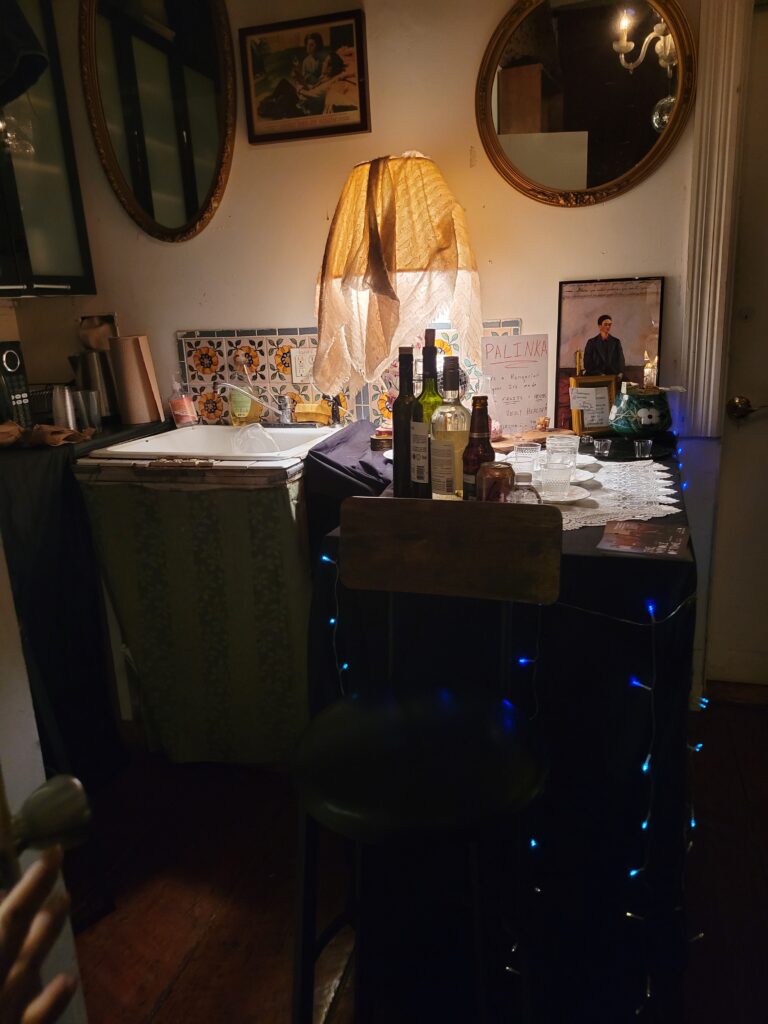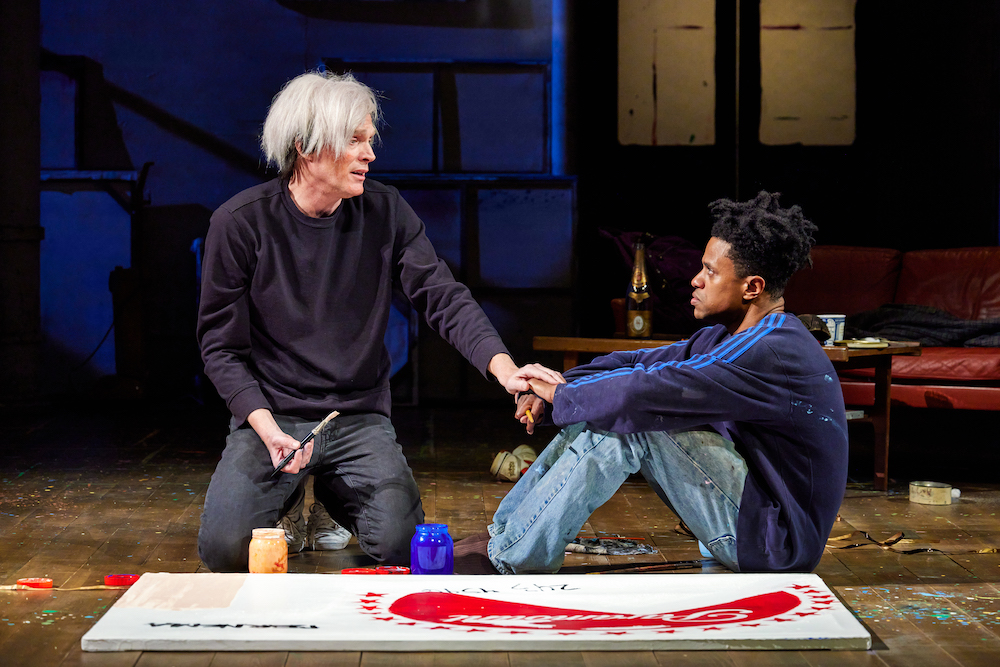The Whole of Time at Torn Page – A Stirring Exploration of Family, Isolation, and the Allure of Home
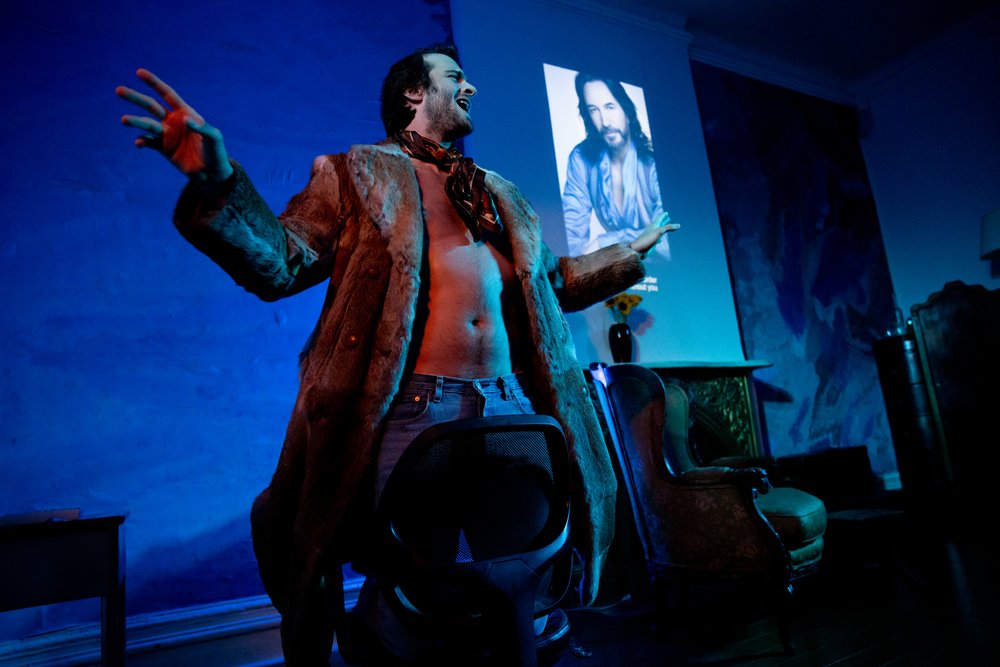
This past Friday evening, I had a profound connection with a play, and if I’m being entirely honest, perhaps a touch more than I anticipated.
The Whole of Time focuses in on a family who is the very epitome of enmeshment.
In the mesmerizing world of the play, the androgynous Antonia (Josefina Scaro), whose age remains delightfully indeterminate, captivates with her childlike charm emanating from a sweater vest and a playful imagination. Yet, the revelation of her young adulthood adds a touch of disturbance and a dash of heartwarming complexity. Antonia’s self-confinement to her home grants her the freedom to embrace her authentic self but simultaneously cripples her ability to venture beyond her doorstep.
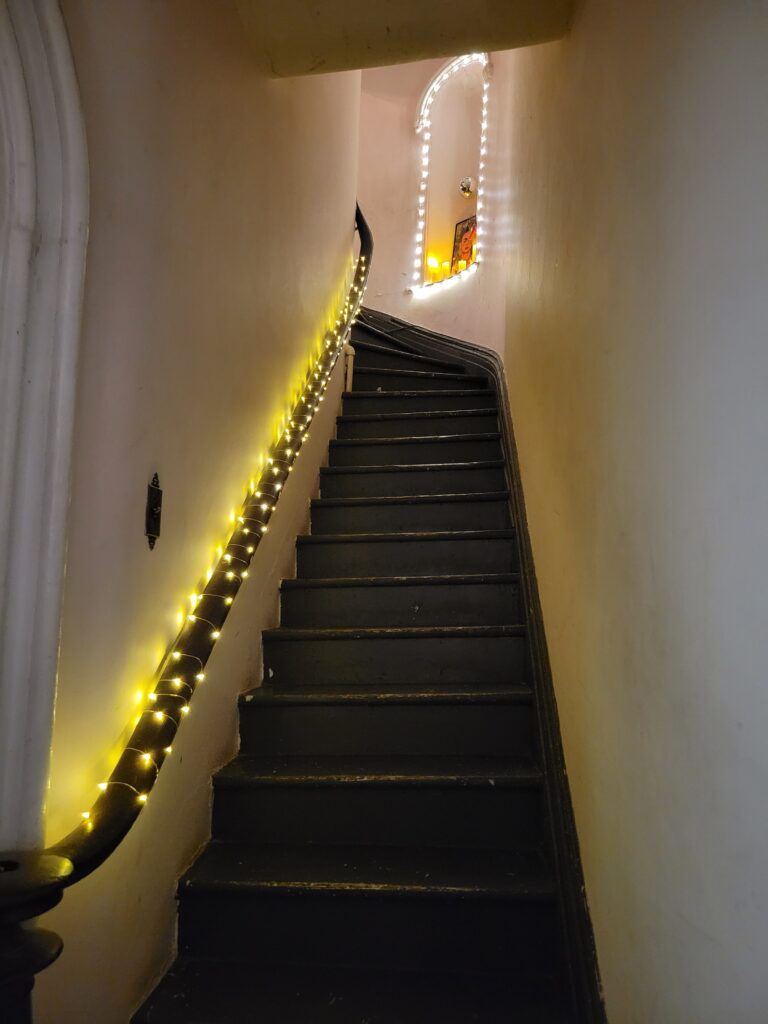
Enter Lorenzo, portrayed by the talented Lucas Salvagno. As Antonia’s faithful confidante and brother, Salvagno not only breathes life into Lorenzo through his lines but also skillfully embodies the character’s persona in his silent moments. Like the elusive whale in Moby Dick, beneath Lorenzo’s composed exterior lies a barely repressed resentment and potential rage. Salvagno’s piercing eye contact as he sings about a passionate wife murderer in the opening scene might just leave you blushing darker than his vibrant red sweater.
Ursula, portrayed by the remarkable Ana B. Gabriel, takes on the role of the mother to Lorenzo and Antonia. In this Argentine production, Gabriel skillfully navigates the intricate and subtle tango that many young women experience with their mothers. Though well-intentioned, Ursula’s caring nature can be somewhat corrosive in delivery. The dynamic between Antonia and Ursula reflects a universal struggle for love and understanding. Both yearn for each other’s affection, but the timing always seems to be inconvenient. Every attempt to express love inadvertently leaves the other wounded and offended.
A cool co-worker of Lorenzo’s, named Maximiliano, brings a sense of effortless humor and sex appeal into the cramped home of the family. What’s most interesting is that, rather than running at the first sight of the chaos churned by this borderline incestuous family, he stays and wades through the turmoil like an unbothered, curious Easy Rider. He’s curious about Antonia’s aversion to the outside world. He’s even willing to help.
Tennessee Williams has long been known for crafting stage works that intimately explore uncomfortable family conflicts. Watching his plays often elicits a maddening sense of feeling trapped, navigating dialogues teeming with intense, dark emotions, and an overall sensation of walking on eggshells. In The Whole of Time, Romina Paula demonstrates brilliance in her ability to not only capture but also seamlessly intertwine the personal turmoil that fueled Williams’ writing into her own script. Her portrayal brings forth a poignant reflection of the complexities and emotional intricacies that have become synonymous with Williams’ work, creating a production that resonates deeply with the essence of his storytelling.
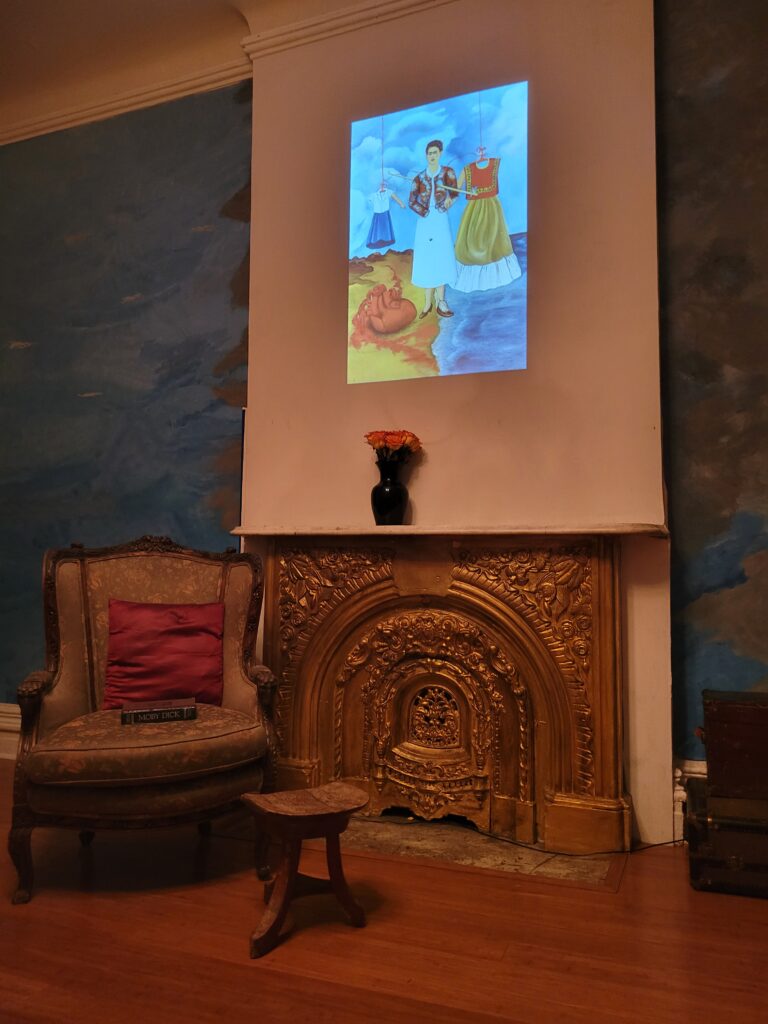
In the face of these anxieties, many find solace in the choice between a Friday evening happy hour and the comfort of home, wrapped under a heavy blanket with a good book. Is it okay to prefer the latter? Is it so wrong to seek refuge in the familiarity of our favorite show or indulge in daydreaming on the couch? These are questions that The Whole of Time provocatively leaves us pondering long after the end of the play. The production, echoing the sentiments of a collective unease, resonates with the audience on a personal level, prompting introspection into perhaps the most germane inner conflict of our lives. Perhaps instead of being crass and judgmental over this shared issue, we can employ a little bit of Maximilliano’s coolness toward our friends’ idiosyncrasies. When someone at your dinner table shares about their reclusive sister who wears a sweater vest, lean in with interest instead of backing away in disgust.
If the prospect of venturing out in the dead of winter makes you personally nervous, Torn Page provides the ideal sanctuary to dip your toes into the outside world. The plays unfold within a townhouse where, as one of a maximum of 21 audience members, you feel less like a passive observer and more like an intimate participant in the creative process of your eccentric and brilliant friends workshopping a performance. The ambiance channels the spirit of Moulin Rouge, reminiscent of that moment when Ewan McGregor encounters the narcoleptic guy crashing through the ceiling.
Torn Page envelops you in a cozy, amiable atmosphere that transforms the townhouse into a home away from home, albeit one with infinitely cooler entertainment. Dim lighting casts a warm glow, ornate decor surrounds you, and the air is filled with the exciting chatter of cast and audience alike, waiting on cocktails being expertly crafted in the kitchen. Lace delicately drapes over a lantern on the bar in the kitchen, creating an enchanting and intimate setting. In essence, Torn Page has swiftly become my new favorite place, offering a haven that balances comfort and excitement, making it a must-visit venue even in the chill of winter.
